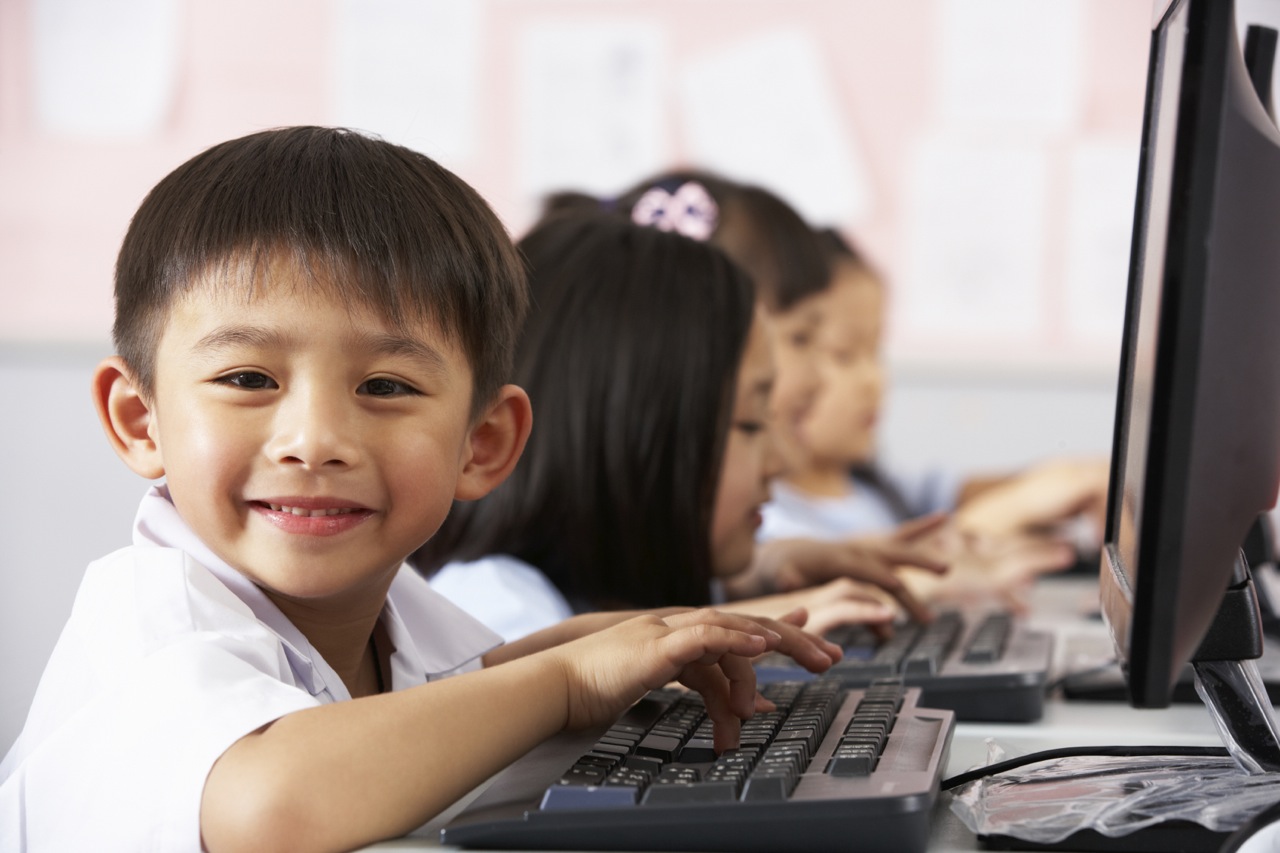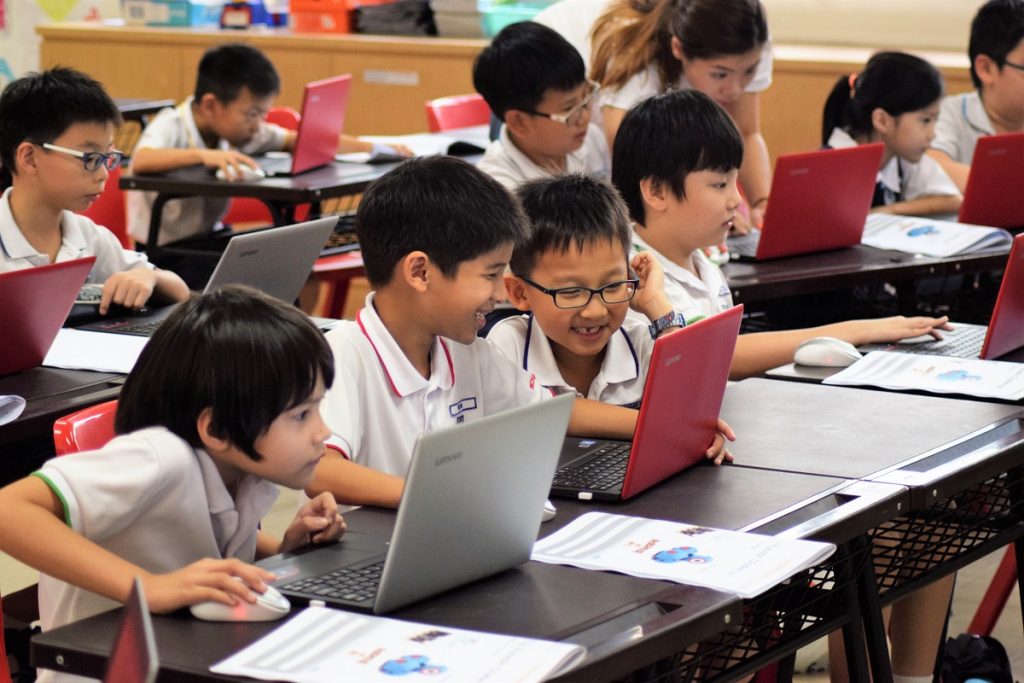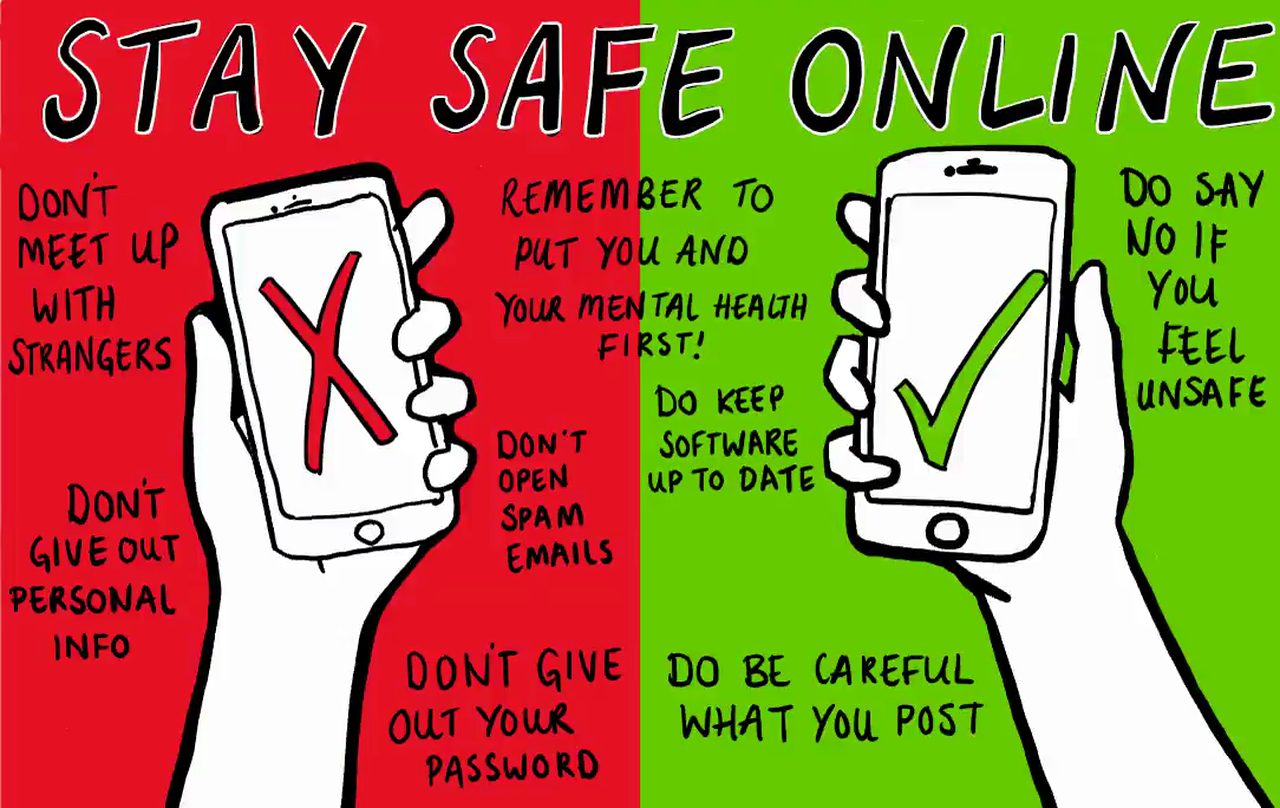
With coding classes quickly shooting to the top of the list for enrichment classes that parents are choosing for their kids, parents are rightfully concerned as to just how their kids are navigating this seemingly untamed digital jungle.
Without the right guides in place, children online might be at risk of falling victim to privacy breaches of not only their personal information but that of their families as well.
In an age of growing reliance on the digital landscape, it comes as no surprise that many parents are jumping on the bandwagon, pushing for a greater depth of digital literacy for their kids.
Continued in the article below, we hope to explore the concerns at the forefront of your mind and maybe provide helpful tips for managing self-internet usage for your family.
Determining the right age for the first personal device.
Most parents would wonder what is the appropriate age for their child’s first personal device. Parents among us or those interacting frequently with kids would be no strangers to the rise in the ‘iPad baby’, referring to young children who have grown up familiar with screen time from a young age. Children of that generation often grow up consuming content from children’s Youtubers, like Miss Rachel, or Blippi, or playing games on their devices like Minecraft or Roblox.
These devices usually belong to the parents, who are able to be fully aware of the content that their children are consuming, and the games that they are playing.
However, if they were to have a personal device, parents might be concerned about what content is being consumed outside of their watchful gaze.

In schools, Personal Learning Devices, or PLDs, have been rolled out to all local secondary schools since 2021. In part because of the pandemic, and also because of technological advances, device-mediated learning has been strongly encouraged. However, in local Primary schools, there is still some hesitation as to letting children have their own PLD. Technology is still widely used in classrooms but is kept to a central device that can be closely monitored by the teacher. However, in many international schools in Singapore, students aged Grades 3, or eight and up, are required to possess a PLD for school use.
With a wide range of ages when it comes to owning their first device, perhaps the decision is best left to the discretion of each individual family, and maybe there is no right or wrong answer to this question.
With that in mind, I believe this segues perfectly to the next point of discussion-
Monitoring your children’s devices in an age-appropriate manner.
While it might be tempting to be able to go through your child’s devices well into their teens, there is of course a need for teenagers to feel like they have autonomy and privacy when it comes to their online activities and communications.
However, as parents, it is still natural to want to protect your kids in these seemingly foreign online spaces.
To navigate this problem, parents might consider monitoring their young adult’s online habits in a public way. Follow your kids on social media, and keep yourself up to date on the things that they are sharing online. Following each other on social media gives parents and children another way to be close, and build an opportunity for parents to lead by example.
Another way to keep your children safe online is to schedule regular check-ins to talk about their social media usage. Asking them about their experiences online and the challenges that they face rather than going behind their backs creates an environment of healthy communication and rapport.
Some questions that would be worth asking would be if they ever felt uncomfortable or worried about anything they saw or did online. Or, if the were aware of the impact their online actions had on others.
For general parental guidance, one could reassure their children that they are open to discussing anything they are curious about online in a judgement free zone.
How to talk about digital literacy with your children.
Having an honest discussion about internet safety might feel like navigating a minefield. Hopefully, with some insight, it just might get easier.
Perhaps the trick boils down to tailoring the conversation of internet safety to the age of the child. You wouldn’t possibly be talking to your five-year-old about the dangers of falling into an online love scam right?
With younger children, it might be wise to discuss the type of content that is allowed to be consumed. Anything on YouTube kids would most likely be a safe bet. On streaming sites, it is possible to create a child-safe account, which hides more content that would be shown to adults.
For school, your child’s PLD might have access to the internet. On school premises, unsavoury websites will most often be blocked, as well as websites that allow gaming or pirating services. Outside of school premises, it might be advisable to restrict usage of the device on data or 5G mode.
Most search engines also come with a safe search and parental lock option.
As your child gets older, and they can fully comprehend the dangers present on the internet, it seems feasible to slowly lift the restrictions imposed. Hopefully, at that point, there is an understanding as to why the limitations were imposed in the first place.
Curiosity may still exist, but hopefully, with a foundation of communication and understanding, the dark side of the internet may just remain unexplored.
For older children and teens, it might be harder to enforce parental locks on personal devices. Older children are also more at risk of communicating with strangers online.
It might be worth some discussion with older kids to talk about what is appropriate to be shared. Personal information like contact information should not be shared with strangers, and neither should images.
That being said, it might be hard for some parents to relinquish control over their children’s personal devices.

In conclusion, the internet is very much the Wild West of our time. Full of endless opportunities, but also seemingly ever-present danger. As a family, we hope that this article gives you ideas on how to tread internet usage carefully and use both online resources and devices to your advantage.
With open and healthy communication, the internet can definitely be a wonderful tool for the family and not the enemy.
If you are looking for more wholesome resources for people of all ages in your family, you can keep on reading the SmileTutor blog for more tips on parenting, lifestyle and everything in between!
